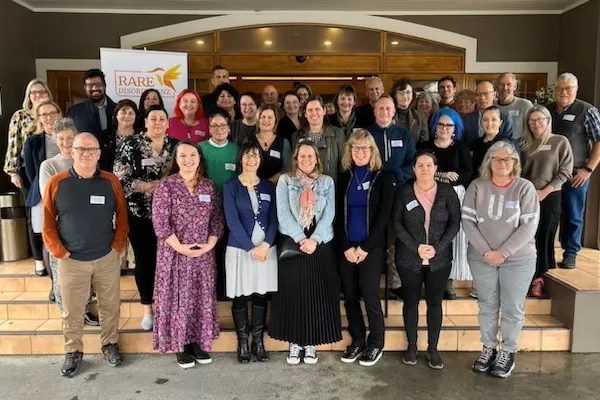Biennial Support Group Lead Hui
16 Aug 2024
On 2 August Rare Disorders NZ hosted our biennial Support Group Lead hui in Wellington. It was an opportunity for support group leads from around the country to get together, share learnings and come away with new tools to help support their roles.
Most patient support group leads voluntarily run their support group while managing their own condition or caring for someone with a rare condition. They provide somewhere for people who have the same rare condition to connect, ask questions and share information. Their work is invaluable for the sense of community they create for people living with the rare condition; helping people feel supported, understood and less isolated.
At the hui the group leads received an update on the most recent developments on the Rare Disorders Strategy from Rare Disorders NZ, and also from Te Whatu Ora regarding the next important stage – implementation of the Strategy.
The next sessions offered some upskilling to help support attendees in their roles as leads of support groups.
Media trainer Greg Ward provided a two-hour session on how to use the media for advocacy purposes. Greg offered many useful tips and tricks for media interviews and how to communicate effectively to get key messages across.
This was followed by a presentation on Preventing Compassion Fatigue and Building Compassion Resilience from Umbrella Wellbeing. This presentation offered tools for how to support people in their groups without getting too emotionally involved.
The day concluded with a Q & A session with RDNZ board members.
If any support group leads who were unable to attend the day would like a copy of the slides presented at the hui, please email engagement@raredisorders.org.nz.


